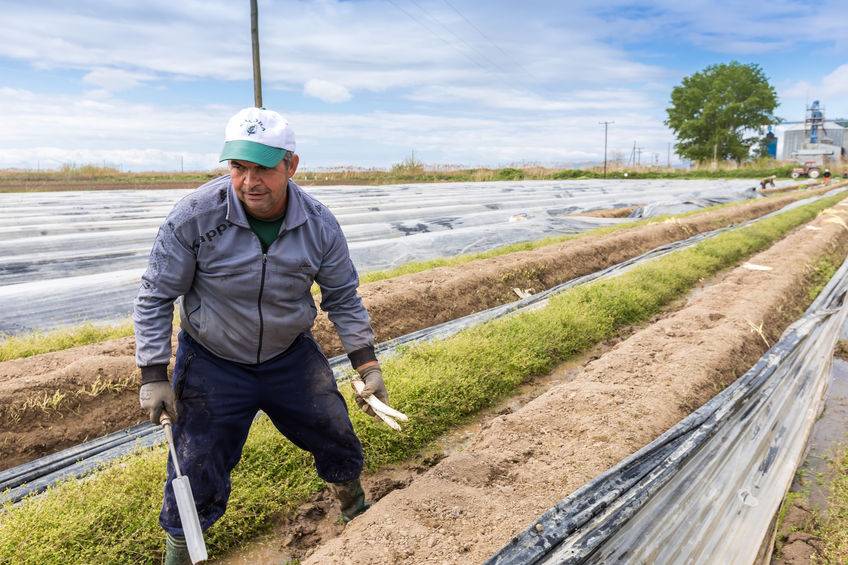
Cornwall county council has asked the government for special permission to implement area-specific migration laws because of a drain on labour.
The South West county voted to leave the European Union in last year's referendum by more than 56 per cent, which was above the national average. The area is home to 17,000 EU nationals, making up 3 per cent of the county's population, and are mainly employed in industries such as food and agriculture.
But new research by the council shows that Cornish farms are already unable to fully harvest crops this year due to a sharp fall in migrant labour.
It found changes to migration laws after Brexit could lead to multi-million pound losses to the Cornish economy if the horticultural industry can’t access the skills and workforce it needs.
The research found that following the Brexit vote, recruitment immediately became more difficult for horticultural farms, harvests could not be lifted in full and staffing requirements were already dwindling to 65% of need.
The research also found no evidence that migrant labour displacing the local workforce.
The stark warning follows news that Minette Batters, deputy president of the National Farmers' Union, demanded urgent action on seasonal labour decline. She said that "food is rotting in the fields and still we see no action".
'Finished'
David Simmons of Riviera Produce, one of the biggest producers in Cornwall has predicted dire impacts. He said the Cornish industry could be "finished".
“If we put strict limits on Eastern European migrant labour or devise alternative immigration policies that limit so-called ‘low-skilled’ labour, the Cornish horticultural industry is finished,” Mr Simmons explained.
Council Leader Adam Paynter called for Government to take a place-based approach to future migration and workforce.
He said: “Many of our major industries such as horticulture could be severely impacted and are already feeling the pinch with some of our crops rotting in the fields following a sharp fall in the number of EU workers.
“We are working with local partners to improve skills and employment for local people, but there will always be an important place in the Cornish economy for seasonal and migrant workers, particularly in the horticultural industry.
“We are calling on the Government to take a place-based approach to future migration, to make sure that the Cornish economy has access to skills which may not be highly valued in London but which are vital to a major rural economy like ours”.
Sandra Rothwell, chief executive of the Cornwall and Isles of Scilly Local Enterprise Partnership said: “What this study demonstrates is that there are parts of the Cornish economy that are heavily reliant on migrant labour and that any emerging policy on movement of EU nationals must take this into account.
“We cannot afford a one-size fits all solution or the continued uncertainty that has already started to blight the labour market.”
Solutions
The UK farming industry has constantly raised concerns over the increasing lack of migrant labour, which is affecting the ability for some farm businesses to survive.
Last week, the Association of Labour Providers said the farming industry will see a "complete train wreck" of a season next year if worker shortage continues to decline.
But farmer Tim Chambers, who runs fruit and vegetable farm W.B.Chambers & Son in Kent and voted for Brexit, argued that farmers could attract labour from outside of the EU, from countries such as Ukraine and Belarus.
He told The Daily Express: “I am very positive. I did not vote for my business, I voted for the greater good of the country.
“The workforce can come from outside of Europe. The rest of Europe has a labour shortage. Other countries in Europe are already solving that by bringing in workers from Ukraine and Belorussian.”
Prominent politicians have also called for British people to fill roles vacated by EU workers after Brexit.
A Conservative MP has said young Brits should "get on their bikes" and take farming jobs to alleviate the shortage of migrant labour post-Brexit.
Ukip has also said British students could provide labour for fresh produce industry to help cut migration.
Prime Minister Theresa May has even suggested a seasonal agricultural workers scheme could be reintroduced after Brexit.
